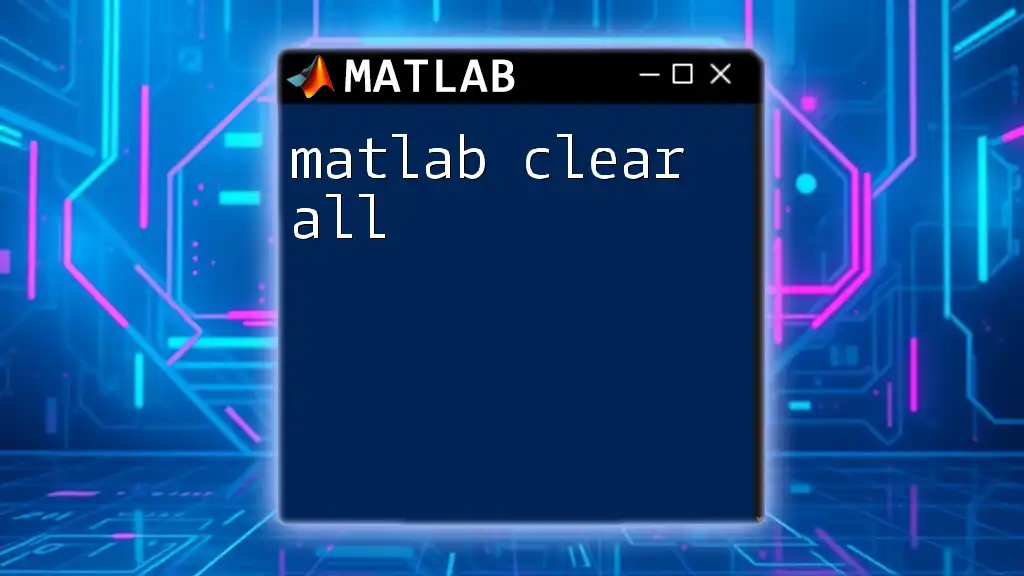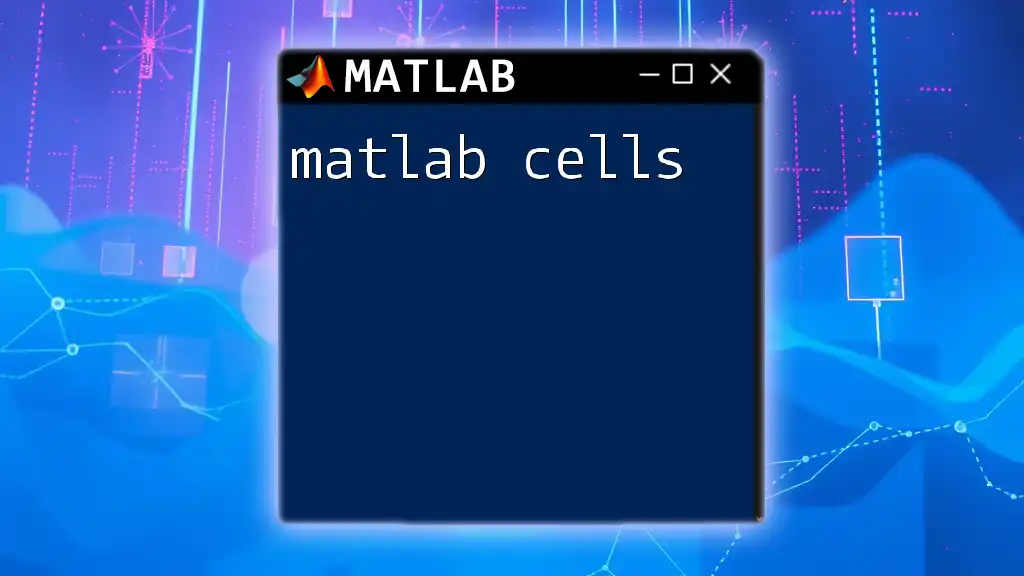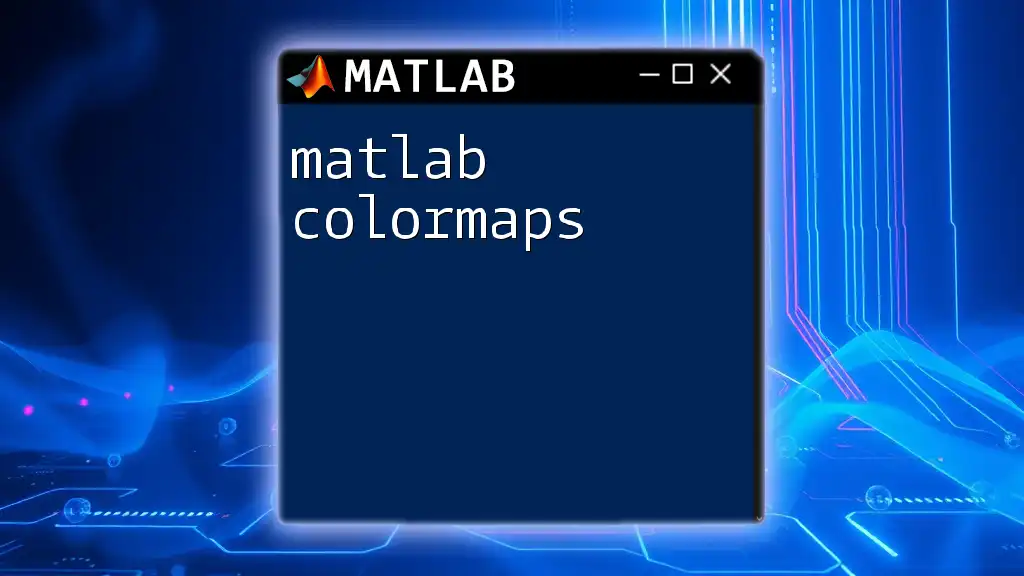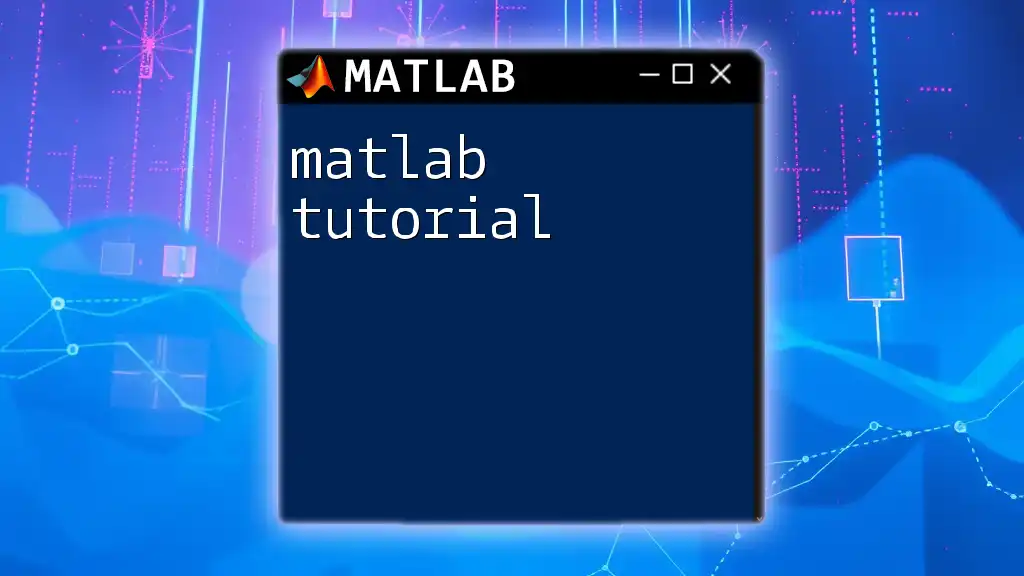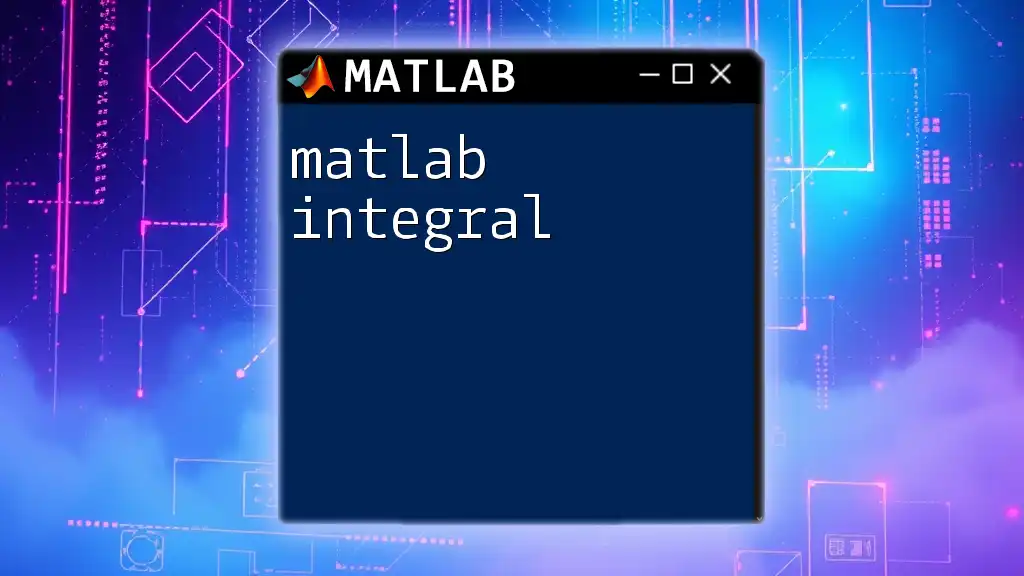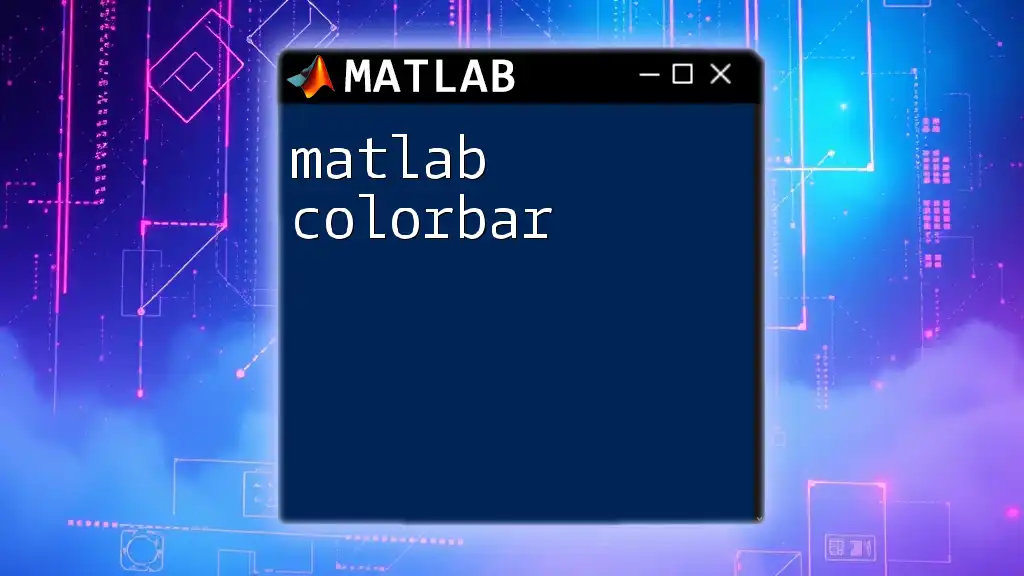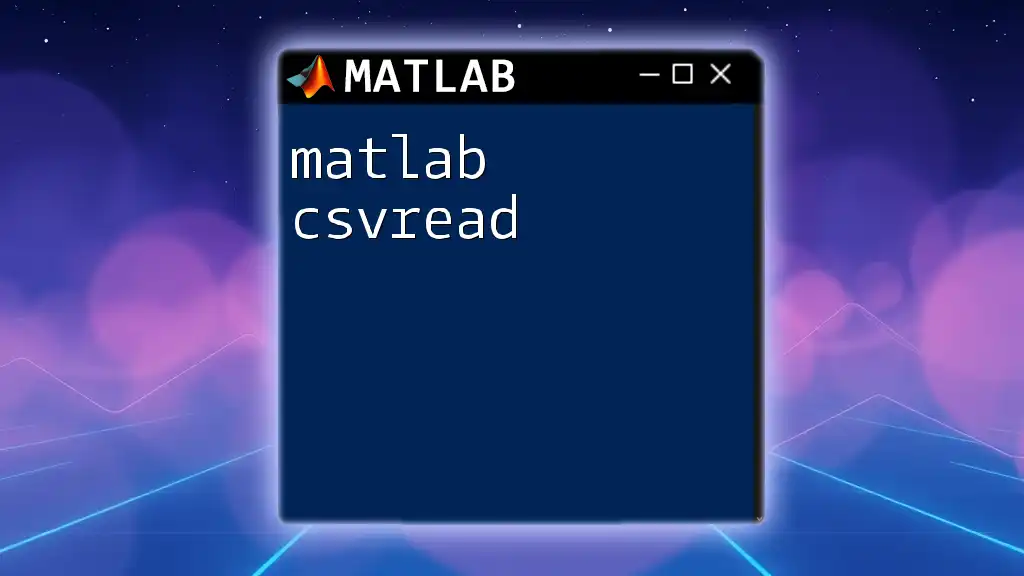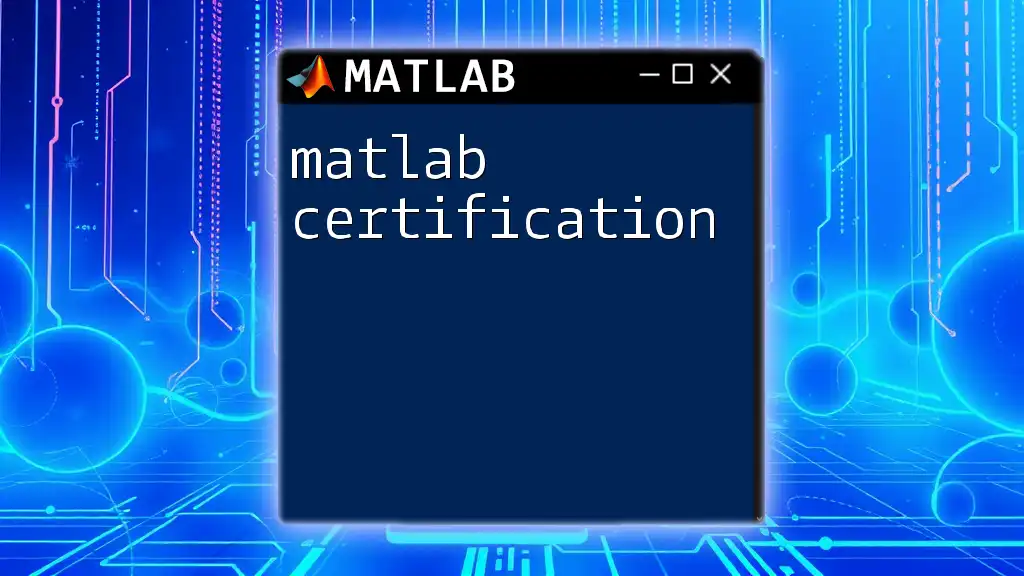The command `clear all` in MATLAB is used to remove all variables, functions, and MEX-files from the workspace, effectively resetting the environment to free up memory.
clear all
Understanding the MATLAB Workspace
What is the MATLAB Workspace?
The MATLAB workspace is a fundamental part of the environment where all variables, functions, and data used during your session are stored. This workspace acts as a container that enables you to access and manipulate data during your analysis. Understanding the workspace's structure is crucial for managing your variables efficiently and for ensuring that your computations are accurate.
Managing Variables in the Workspace
Defining and accessing variables is a common task in MATLAB, but as your project grows, you might end up with numerous variables, which can lead to confusion and unintended errors. Managing these variables effectively becomes essential, especially if you want to maintain clean and functional code.
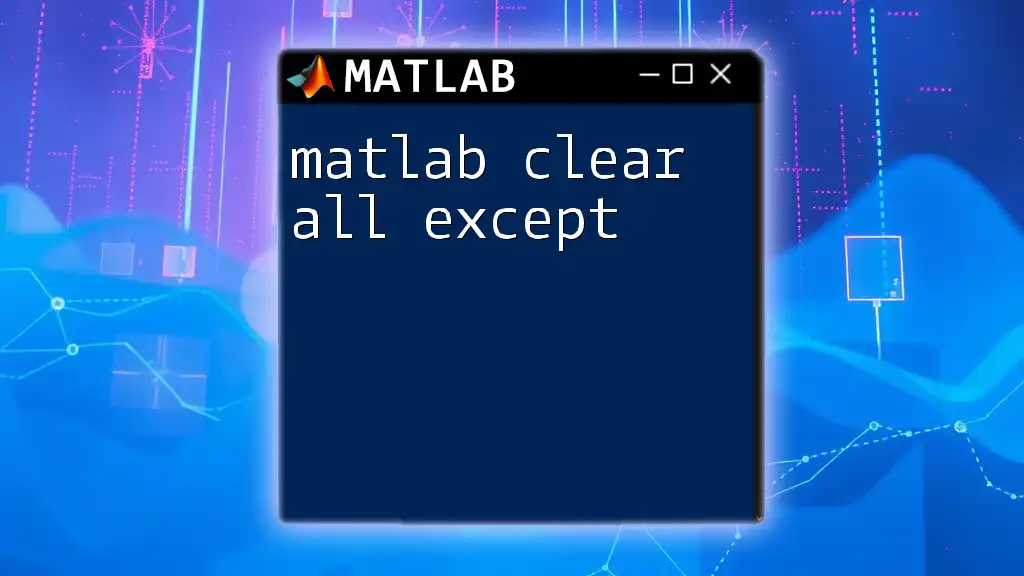
Overview of the `clear` Command
What Does `clear` Do?
The `clear` command is a versatile tool designed to remove variables from the workspace. By using it, you can ensure that unwanted or unnecessary data does not affect your current computations. While `clear` effectively removes the specified variables, it does not impact any functions or scripts that are present in memory.
Syntax of the `clear` Command
The basic syntax for the `clear` command is simple:
clear var1 var2
In this example, `var1` and `var2` are the names of the variables you want to remove. If you only use the command `clear`, it will clear all variables in the workspace but will leave your functions and scripts untouched.
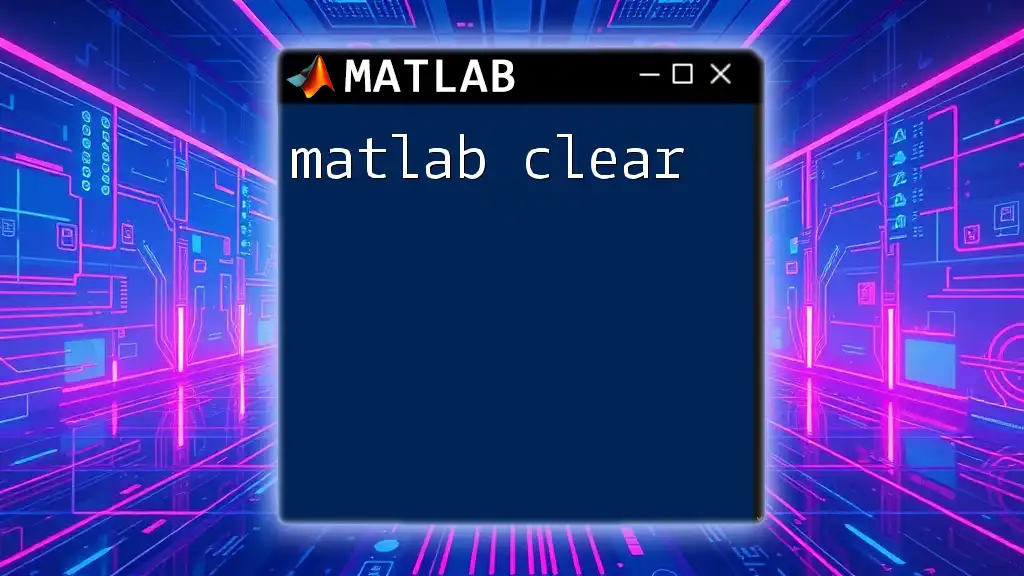
The Power of `clear all`
What Does `clear all` Do?
In contrast to the `clear` command, `clear all` performs a more comprehensive cleanup. When executed, `clear all` removes not only all variables in the workspace but also functions, MEX files, and global variables, as well as any persistent variables defined within functions. This command ensures that you are starting with a completely clean slate, which can be beneficial if you notice unexpected behavior in your scripts.
When to Use `clear all`
There are specific scenarios where `clear all` proves invaluable:
- Memory Management: In long-running scripts or applications, excessive memory usage can become an issue. Using `clear all` can help free up memory.
- Debugging: If you've made changes to your functions or variables during a session and are experiencing unexpected results, clearing everything might help eliminate residual data that could impact your calculations.

Implications of Using `clear all`
Performance Considerations
While `clear all` is a powerful tool, it does come with performance trade-offs. Clearing all variables and functions can take time, especially in larger projects. Additionally, repeatedly using `clear all` in a script can slow down execution it necessitates MATLAB to recompile functions and reload variable data each time.
Potential Drawbacks
One of the most significant drawbacks of using `clear all` is the potential for data loss. Any variable or function you have not saved will be erased from the workspace. Therefore, it is critical to use this command judiciously. You might also consider using `clear` more specifically to target only the variables you wish to remove without jeopardizing your environment entirely.
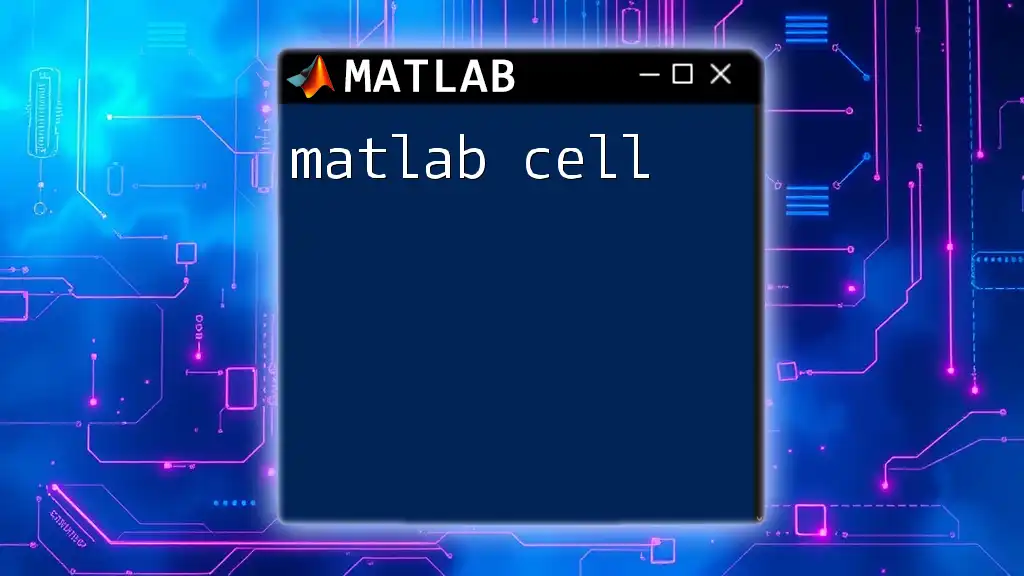
Usage Examples of `clear all`
Basic Example
Here’s a simple demonstration of using `clear all`:
x = 10; % Define a variable
clear all; % Clear all variables and functions
In this example, executing the `clear all` statement will remove the variable `x` from the workspace. After running this command, trying to access `x` will result in an error since it no longer exists.
Advanced Example with Functions
Consider another example where we define a function:
function exampleFunc()
a = rand(1, 1000);
end
clear all; % This will remove 'exampleFunc' too
In this case, using `clear all` will remove both the variable `a` created inside `exampleFunc()` and the function itself from memory. Hence, subsequent calls to `exampleFunc()` will generate an error unless it is redefined.
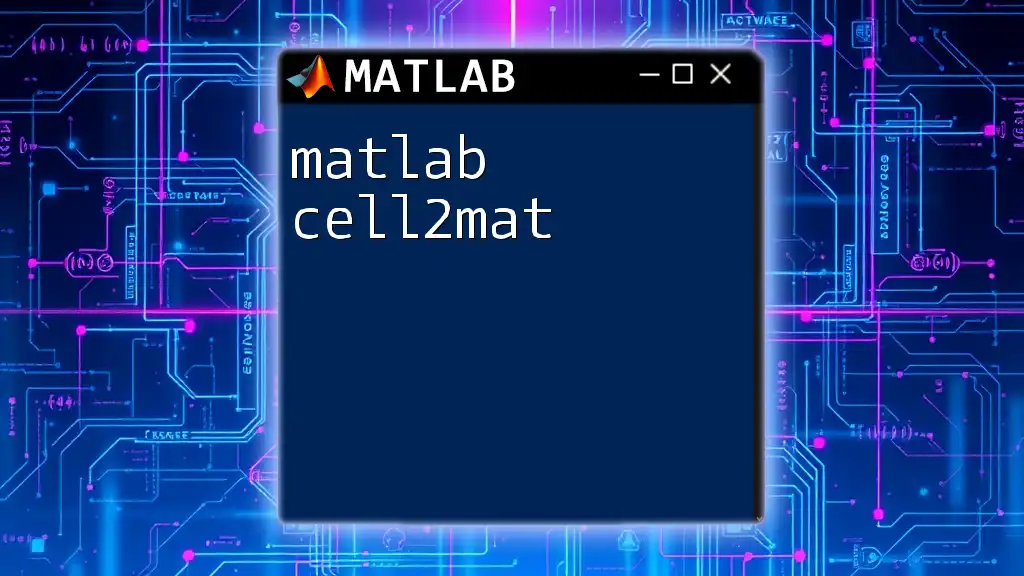
Best Practices for Using `clear all`
Tips to Efficiently Manage Workspace
Instead of using `clear all` as a default habit, consider the following recommendations for efficient workspace management:
-
Use `clearvars`: This command allows you to specify which variables to clear, conserving the rest of your workspace.
clearvars x y; % Clears only variables x and y -
Combine Clearing Commands: Use `clc` to clear the Command Window and `close all` to close any open figures, ensuring a clean workspace before running scripts.
Efficient Coding Techniques
To maintain a clean workspace and reduce reliance on `clear all`:
- Adopt structured programming: Organize your scripts and functions logically, which will help reduce the number of variables in scope at any given time.
- Use descriptive variable names: This practice can minimize confusion and makes it easier to track and manage your variables.
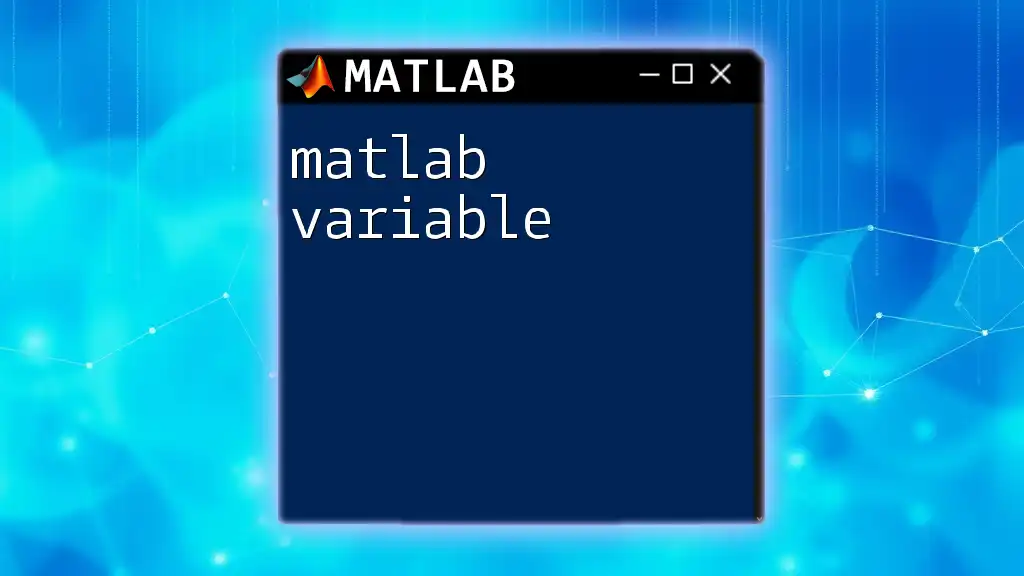
Conclusion
Understanding the `clear all` command is essential for managing your MATLAB workspace effectively. While it offers a straightforward way to reset your environment, its comprehensive nature can lead to performance issues and data loss if not used carefully. By following best practices in variable management and opting for more specific commands when possible, you can enhance your MATLAB experience significantly.

Additional Resources
To delve deeper into MATLAB’s functionality, refer to the official MATLAB documentation and explore community forums for advanced tips and tricks. Engaging with resources can augment your learning and provide fresh insights into effective programming techniques in MATLAB.

